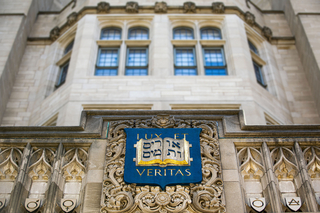Supporting a Clean Transportation Sector: State Policy Options and Actions in Sustainable Aviation Fuels
The National Association of State Energy Officials (NASEO) would like to work with a Bekenstein Climate Leaders Summer Fellow (Bekenstein Fellow) to develop an analysis examining the existing and potential opportunities for State and Territory Energy Offices in supporting the development and use of Sustainable Aviation Fuels (SAF) to improve efficiency and reduce emissions in the transportation sector. The work and analysis conducted by the Bekenstein Fellow would be heavily informed by desk and internet research; complemented by one-one-one and small-group conversations with NASEO staff, State and Territory Energy Offices, other relevant state agencies and key federal and private sector partners; and developed under the close supervision of NASEO’s Chief of Staff and Senior Program Director for Clean Transportation.
Sustainable Aviation Fuel (SAF) is a low-carbon synthetic jet fuel derived from renewable resources such as agricultural waste, used cooking oil, and other sustainable feedstocks. It can reduce lifecycle greenhouse gas emissions by up to 80 percent compared to conventional jet fuel and is compatible with existing aircraft and infrastructure. With emissions from the aviation sector on the rise, public and private sector partners are exploring various policy and market options to support SAF research, development, and adoption. NASEO’s Transportation Committee has identified a need for State Energy Offices to learn more about the SAF market, and in particular how State Energy Offices can engage relevant stakeholders and catalyze the SAF market. The Bekenstein intern’s work would play a critical role in inspiring change by equipping State and Territory Energy Offices with actionable information and examples, and assisting NASEO in supporting clean transportation policy and program development at the state level. The final products to be developed by the intern will include a draft written analysis, accompanying PowerPoint presentation, and webinar that: provide an introduction to sustainable aviation fuels for a policymakers audience; identifies key trends in the domestic and global SAF market, and key stakeholders and private sector initiatives; highlights existing federal and state level policies and programs to support SAF, as well as potential synergies with other state (air)port emissions reduction work (e.g., EPA Clean Ports Program); and identifies potential opportunities for State and Territory Energy Offices to support a growing SAF market through policies and programs.
Qualifications
- Interest in clean energy and/or clean transportation policy and market development; experience with federal or state-level policy research a plus
- Excellent written and oral communication skills
- Self-starter with ability to research independently with input from a team
- Dependable and responsible
- Attention to detail
Timeline
- Week of June 2: Kickoff meeting with NASEO
- June 2-23: Initial online research; attend virtual and in-person events as appropriate
- June 23: Initial outline due
- June 30-July 18: Research continues, interviews with states and subject matter experts
- July 21: First draft due; begin presentation draft
- August 11: Final draft due
- Week of August 18: Webinar with NASEO staff and/or State Energy Offices disseminating findings
Background
NASEO is the only national non-profit association for the governor-designated energy officials from each of the 56 states and territories. Formed by the states in 1986, NASEO facilitates peer learning among state energy officials, serves as a resource for and about State Energy Offices, and advocates the interests of the State Energy Offices to Congress and federal agencies. State and territory energy policies and programs are vital to spurring economic development, increasing energy efficiency, and expanding clean, domestic energy resources. The 56 State and Territory Energy Offices are important agents of change – advancing practical energy policies, informing regulatory processes, and supporting energy technology research, demonstration, and deployment. In partnership with the private sector, the State Energy Offices accelerate energy-related economic development and support meeting state climate goals through energy solutions that address their citizens’ needs equitably and enhance physical and cyber energy security.
